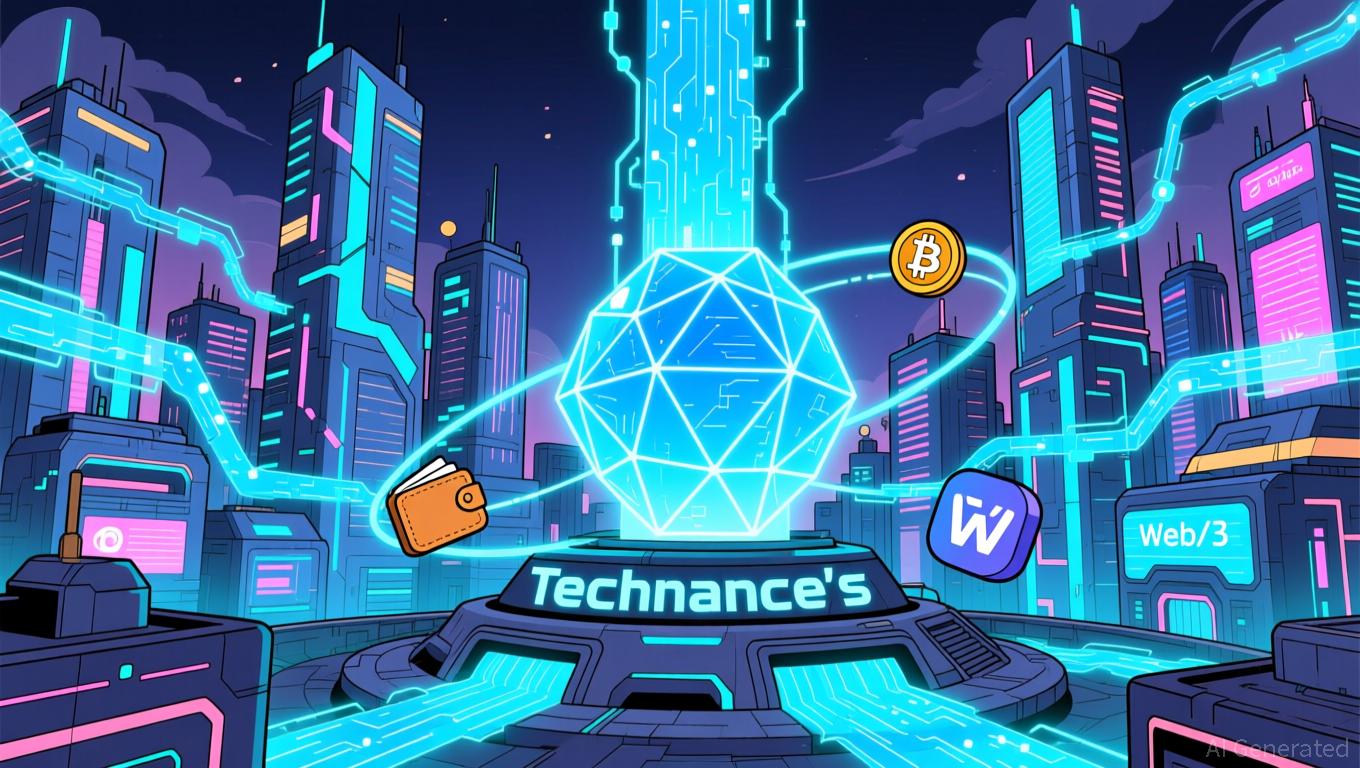VanEck CEO warns about Bitcoin encryption and privacy
VanEck sees quantum threats and privacy gaps in Bitcoin.
- VanEck CEO warns on Bitcoin encryption and privacy
- VanEck considers Zcash as Bitcoin faces quantum risks
- Industry experts debate Bitcoin’s quantum computing threat
VanEck CEO Jan van Eck questioned Bitcoin’s encryption and privacy protections during a recent appearance on CNBC’s Power Lunch, stating the asset management firm could withdraw from the cryptocurrency if fundamental technological concerns are not addressed.
Speaking alongside anchor Brian Sullivan, van Eck said challenges facing Bitcoin extend beyond price volatility, pointing to technological weaknesses within the cryptocurrency’s design.
“There’s something else going on within the Bitcoin community that non-crypto people need to know about,” van Eck stated, according to the broadcast. “Ultimately, VanEck has been around before Bitcoin. We will walk away from Bitcoin if we think the thesis is fundamentally broken.”
The executive cited concerns about Bitcoin’s ( BTC ) cryptographic robustness, resistance to quantum computing threats, and privacy model as key evaluation factors. Van Eck referenced Zcash as an alternative some Bitcoin holders are considering, noting that privacy and encryption strength have emerged as significant concerns within segments of the cryptocurrency community.
Following the appearance, van Eck attributed the ongoing bitcoin bear market to multiple factors, including the halving cycle ‘s impact through 2026, quantum encryption concerns, and comparisons to Zcash’s privacy features, according to statements reported by ecoinimist.com. He also noted advice from VanEck portfolio manager Pranav Kanade regarding dollar cost averaging during bear markets.
The comments align with broader industry discussions about quantum computing threats to blockchain technology. At Devconnect in Argentina on Nov. 17, Ethereum co-founder Vitalik Buterin warned about quantum computing’s potential impact on cryptographic standards, stating “Elliptic curves are going to die,” in reference to mathematical foundations securing Bitcoin and Ethereum.
University of Texas at Austin professor Scott Aaronson, a quantum computing researcher, said a fault-tolerant quantum computer capable of running Shor’s algorithm could emerge before the 2028 U.S. presidential election, given current hardware progress rates. Such technology would enable attackers to derive private keys from public ones, posing systemic risks to existing blockchains.
Samson Mow, CEO of Bitcoin infrastructure firm JAN3, disputed van Eck’s statements, arguing the VanEck executive should not be speaking on Bitcoin and rejecting suggestions that Bitcoin proponents are shifting toward privacy-focused alternatives like Zcash.
Zcash has experienced price gains amid increased attention to privacy features, according to market data. The cryptocurrency’s performance reflects how narratives around privacy and quantum resistance can influence trading activity during periods of Bitcoin weakness.
The debate highlights emerging questions about whether Bitcoin’s architecture can withstand advances in quantum computing technology, a consideration that may factor into market assessments as participants evaluate the cryptocurrency’s long-term viability.
Disclaimer: The content of this article solely reflects the author's opinion and does not represent the platform in any capacity. This article is not intended to serve as a reference for making investment decisions.
You may also like
Bitcoin Updates Today: SpaceX Chooses Security First in Its Bitcoin Strategy Instead of Selling
- SpaceX transferred $105.4M in Bitcoin to two unmarked wallets on Nov 26, 2025, its first major BTC activity since October. - Analysts attribute the move to internal custody optimization rather than sale prep, aligning with SpaceX's historical consolidation patterns. - The transfer contrasts Tesla's static BTC holdings (11,509 BTC) and highlights divergent crypto strategies between Musk's companies. - Market observers view the move as a signal of institutional Bitcoin sentiment amid broader crypto volatil

Technance’s modular platform accelerates the integration of conventional and Web3 technologies
- Technance launched a modular tech stack for crypto exchanges and Web3 platforms, bridging traditional finance and digital assets. - The Dubai-based infrastructure offers high-performance trading, liquidity aggregation, and blockchain integration. - CEO Haghshenas emphasized modular infrastructure to accelerate development while ensuring institutional-grade security. - Analysts highlight growing demand for scalable solutions as digital asset markets expand and regulations evolve. - Technance's interoperab

Infrastructure-Led Renewal: Harnessing Sustainable Value in Redeveloped Industrial Properties
- Post-industrial towns in the U.S. and Europe are revitalizing through infrastructure-driven real estate redevelopment, transforming abandoned sites into tech hubs and mixed-use spaces. - Strategic projects like Pennsylvania’s tech hubs and Poland’s Zabrze 2030 plan demonstrate how industrial tourism and innovation attract talent, boosting local economies and property values. - U.S. infrastructure investments have driven $13.1T in real estate value growth since 2018, with 7.3% annual job growth in infrast

The ICP Token Jumps 30%: Is This a Turning Point for AI Infrastructure?
- ICP token surged 30% in 2025, driven by Caffeine AI platform launch and strategic partnerships with Microsoft and Google Cloud. - Chain Fusion protocol enhanced cross-chain interoperability, aligning ICP with AI's demand for diverse data sources and decentralized infrastructure growth. - Market trends show AI compute demand reaching $1.81 trillion by 2030, with ICP positioned to address scalability challenges through distributed cloud solutions. - Energy constraints and regulatory risks remain challenges

